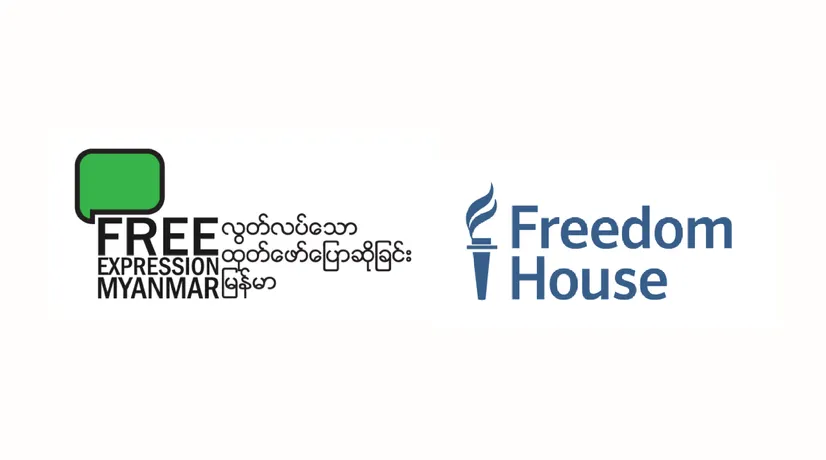Freedom of the Net: Analysis of Digital Rights in Myanmar in 2019
05 November 2019

June 1, 2018 – May 31, 2019
Overview
Internet freedom remained constrained in Myanmar during the coverage period, as the government sustained its assault on free expression online. The military and ruling party continued manipulating online content, while users were hesitant to discuss sensitive topics such as gender, the mostly Muslim Rohingya ethnic group, or conflicts in Rakhine, Shan, and Kachin states. Worryingly, some individuals who criticized the government online faced prosecutions and even prison time under a range of laws, including the repressive Telecommunications Law.
Myanmar’s transition from military dictatorship to democracy has faltered under the leadership of the National League for Democracy (NLD), which came to power in relatively free elections in 2015 but has failed to uphold human rights or bring security to areas affected by armed conflict. The military retains significant influence over politics, and the country is under international pressure regarding a 2017 military operation that forced more than 700,000 members of the Rohingya minority to flee to Bangladesh.
Key findings: Obstacles to Access
Internet access continues to improve in Myanmar, as more users connect via smartphones with fast 4G service. The success of two foreign-owned mobile service providers has placed pressure on the state’s monopoly, and the government has responded by giving a mobile phone license to a military-owned conglomerate and restoring the state’s majority control over the mobile market.
Key findings: Limits on Content
While the government continues to refrain from applying direct limitations on content, self-censorship on a range of subjects including the military, corruption, and the Rohingya, remains high. Social media companies have responded to pressure by opaquely increasing content removals, which has removed legitimate content. Users are free to access the internet, but there is a lack of diversity in the ownership and content of online media outlets. Meanwhile, the government and military actively promote their own narratives online and reject much independent reporting as “fake news.”
Key findings: Violations of User Rights
Criminalisation of internet users persisted, including under several criminal defamation laws, while the government has hinted that a draft cybersecurity law could contain provisions punishing online criticism of the government. Intimidation of users remains common, through online surveillance carried out by the government and military, as well as harassment against those reporting on or discussing conflicts in Rakhine, Shan, and Kachin states online, in addition to users discussing gender and other so-called “sensitive” issues.
It includes updates on the following questions:
- Do infrastructural limitations restrict access to the internet or the speed and quality of internet connections?
- Is access to the internet prohibitively expensive or beyond the reach of certain segments of the population for geographical, social, or other reasons?
- Does the government exercise technical or legal control over internet infrastructure for the purposes of restricting connectivity?
- Are there legal, regulatory, or economic obstacles that restrict the diversity of service providers?
- Do national regulatory bodies that oversee service providers and digital technology fail to operate in a free, fair, and independent manner?
- Does the state block or filter, or compel service providers to block or filter, internet content?
- Do state or nonstate actors employ legal, administrative, or other means to force publishers, content hosts, or digital platforms to delete content?
- Do restrictions on the internet and digital content lack transparency, proportionality to the stated aims, or an independent appeals process?
- Do online journalists, commentators, and ordinary users practice self-censorship?
- Are online sources of information controlled or manipulated by the government or other powerful actors to advance a particular political interest?
- Are there economic or regulatory constraints that negatively affect users’ ability to publish content online?
- Does the online information landscape lack diversity?
- Do conditions impede users’ ability to mobilize, form communities, and campaign, particularly on political and social issues?
- Do the constitution or other laws fail to protect rights such as freedom of expression, access to information, and press freedom, including on the internet, and are they enforced by a judiciary that lacks independence?
- Are there laws that assign criminal penalties or civil liability for online activities?
- Are individuals penalized for online activities?
- Does the government place restrictions on anonymous communication or encryption?
- Does state surveillance of internet activities infringe on users’ right to privacy?
- Are service providers and other technology companies required to aid the government in monitoring the communications of their users?
- Are individuals subject to extralegal intimidation or physical violence by state authorities or any other actor in retribution for their online activities?
- Are websites, governmental and private entities, service providers, or individual users subject to widespread hacking and other forms of cyberattack?
Full report can be viewed here.
၎
င
၎
၎
Announcements
21 May 2025
Open letter: Malaysia must lead ASEAN with principle, not hypocrisy, to address the Myanmar crisis

Progressive Voice is a participatory rights-based policy research and advocacy organization rooted in civil society, that maintains strong networks and relationships with grassroots organizations and community-based organizations throughout Myanmar. It acts as a bridge to the international community and international policymakers by amplifying voices from the ground, and advocating for a rights-based policy narrative.